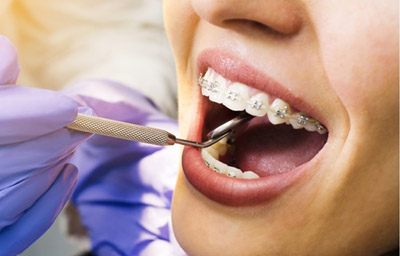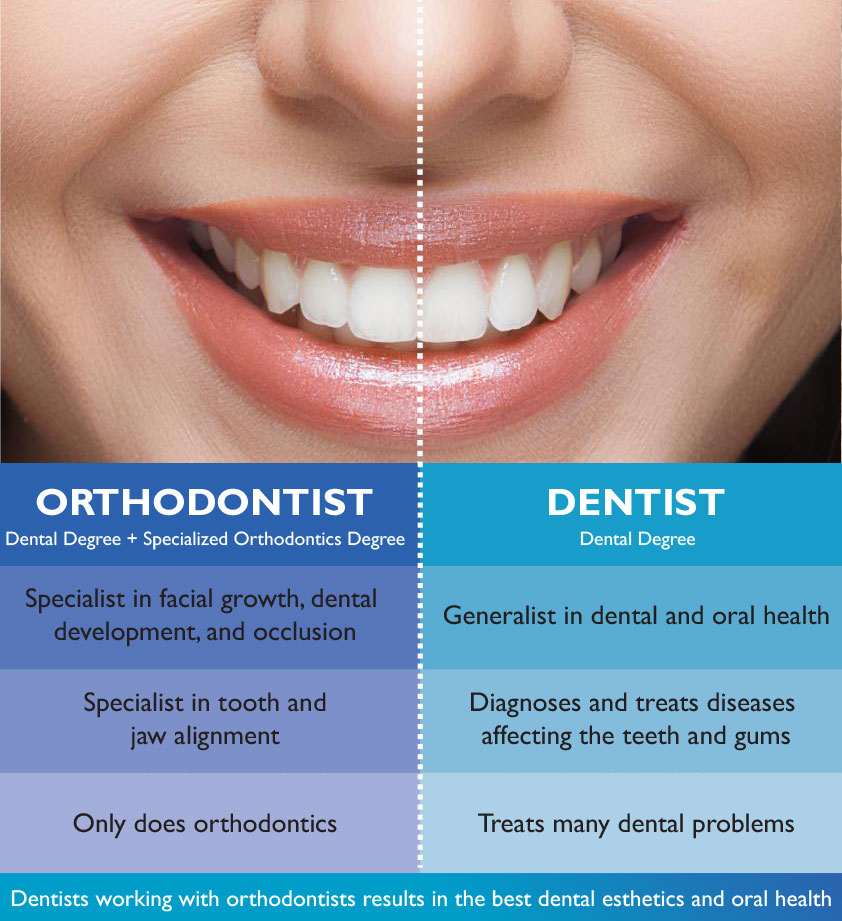Unknown Facts About Causey Orthodontics
Unknown Facts About Causey Orthodontics
Blog Article
Causey Orthodontics for Beginners
Table of ContentsUnknown Facts About Causey Orthodontics7 Simple Techniques For Causey OrthodonticsThe Causey Orthodontics DiariesThe Main Principles Of Causey Orthodontics 4 Easy Facts About Causey Orthodontics DescribedThe Main Principles Of Causey Orthodontics See This Report on Causey Orthodontics
What is the difference in between a dental practitioner and an orthodontist? To address a question that is often asked, both dental practitioners and orthodontists aid patients acquire far better dental health, albeit in various ways. It aids to bear in mind that dentistry is a rather broad science with various medical expertises. All dentists, consisting of orthodontists, deal with the teeth, gums, jaw and nerves.
Orthodontists and dental experts both give dental take care of clients. Orthodontists can operate in an oral office and supply the exact same therapies as other dental professionals. You can assume of both medical professionals that treat gum and teeth problems. The major difference is that becoming an orthodontist calls for a certain specialty in treating the imbalance of the teeth and jaw.
Some Ideas on Causey Orthodontics You Need To Know
An orthodontist is a dentist that has actually undertaken training to focus on the diagnosis, avoidance and therapy of irregularities in the jaw and teeth. Their training includes correcting these existing problems. They can also determine prospective problems in teeth positioning that may create when problems are left neglected. Orthodontists can help people of all ages.
This includes all the needed education and learning to become a general dental practitioner. According to the American Student Dental Organization (ASDA), it suggests you will certainly require to have either a Medical professional of Medication in Dental Care (DMD) or a Medical Professional of Oral Surgery (DDS). Simply put, orthodontists need to complete dental school and after that obtain an orthodontics specialty education.
Some orthodontists additionally get their masters in craniofacial biology. Causey Orthodontics (https://www.bestincom.com/health-care/causey-orthodontics). Numerous oral institutions give limited orthopedic training and instruction, which is why general dental practitioners need to go to orthodontic school after graduation. Orthodontic residency programs supply extensive training for this sort of dental specialization. These programs concentrate on two certain locations or self-controls: Dentofacial Orthopedics: This study concentrates on directing teeth and jaw development.
All about Causey Orthodontics

 These consist of device such as dental braces, retainers and Invisalign. What does an orthodontist do, and what do they concentrate on? The total goal of an orthodontist is to improve a patient's bite. Not everybody is born with straight teeth, and an orthodontist will ensure that clients get uniformly spaced straight teeth.
These consist of device such as dental braces, retainers and Invisalign. What does an orthodontist do, and what do they concentrate on? The total goal of an orthodontist is to improve a patient's bite. Not everybody is born with straight teeth, and an orthodontist will ensure that clients get uniformly spaced straight teeth.
Getting My Causey Orthodontics To Work
The American Organization of Orthodontists advises your initial check up by age 7. You'll need to see your orthodontist if you have a misalignment in your teeth, also referred to as malocclusion. If you observe irregular bite patterns, a slightly askew jaw, or when your teeth are jammed, you will likely need orthodontic therapy.
At Advanced Orthodontics, we supply individuals with a alternative treatment experience. In enhancement, we provide adjustable treatment routines, flexible payment options and an enjoyable, satisfying experience. Call ( 480) 357-4900 today for more information and routine a visit.
An orthodontist is a dental expert educated to identify, protect against, and treat teeth and jaw abnormalities. They correct existing conditions and are trained to recognize troubles that might develop in the future. Orthodontists deal with individuals of all ages, from youngsters to grownups. Individuals usually link an excellent smile with healthiness.
The Single Strategy To Use For Causey Orthodontics
Malocclusion, or misaligned teeth, can cause oral problems, including dental caries, periodontal disease, and tough or painful eating. However not every person is born with straight teeth. If you have a negative bite or big spaces between your teeth, you may intend to speak with a dental expert specializing in orthodontic care.
(Photo Credit Score: DigitalVision/Getty Images) Orthodontists use taken care of and removable dental tools, like dental braces, retainers, and bands, to alter the position of teeth in your mouth. Orthodontic treatment is for dental abnormalities, consisting of: Uneven teethBite problems, like an overbite or an underbiteCrowded teeth or teeth that are too much apartJaw misalignmentThe goal of orthodontic treatment is to enhance your bite.
Getting The Causey Orthodontics To Work

All orthodontists are dental experts, but not all dental practitioners are orthodontists. Orthodontic residency programs supply intensive, focused instruction for oral professionals. They concentrate on two areas: How to effectively and safely relocate teeth How to appropriately assist advancement in the teeth, jaw, and faceOnce an orthodontist has actually finished training, they have the choice to end up being board accredited.
Malocclusion leads to tooth overcrowding, a twisted jaw, or uneven bite patterns. Malocclusion is normally treated with: Your orthodontist affixes metal, ceramic, or plastic square bonds to your teeth.
Not known Details About Causey Orthodontics
If you have just minor malocclusion, you may have the ability to use clear braces, called aligners, as opposed to typical braces. Some people require a headgear to aid relocate teeth into line with pressure from outside the mouth. After braces or aligners, you'll need to put on a retainer. A retainer is a custom tool that keeps your teeth in place.
Report this page